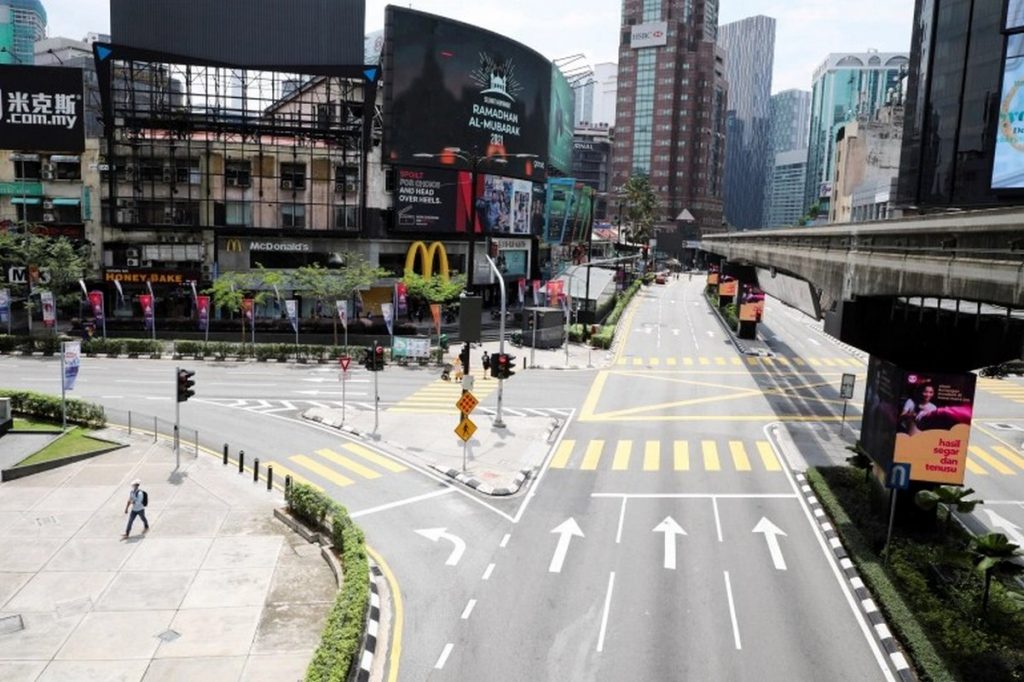Malaysia is battling a rapidly escalating coronavirus outbreak that has strained the country’s healthcare system.

Malaysian Prime Minister Muhyiddin Yassin has announced a nationwide “total lockdown” starting in June as coronavirus infections in the country surged to record levels.
Muhyiddin said the stricter lockdown from June 1 to 14 was for all social and economic areas, and that only essential services and economic sectors would remain in operation, which would be listed by the national security council.
Officials believe more infectious variants have contributed to the surge, as well as gatherings in the Muslim-majority country during the holy month of Ramadan and the Eid al-Fitr holiday earlier this month.
“With the latest rise in daily cases showing a drastically upward trend, hospital capacity across the country to treat COVID-19 patients are becoming limited,” Muhyiddin said in a statement on Friday.
Malaysia reported 8,290 new coronavirus cases on Friday, its fourth straight day of record infections, bringing its total to 549,514. The number of daily fatalities has also reached records, with 63 earlier this week.
It reported 61 deaths on Friday, taking the total to 2,552.

While moderate by global standards, its outbreak has increased rapidly in recent weeks, and the numbers of patients in intensive care and on ventilators have hit record highs.
Malaysia has started its COVID-19 inoculation drive, though critics say the rollout has been slow. About 1.7 million people have received at least one dose of a vaccine as of Thursday.
Given the full closure of the economy, the finance ministry will announce a relief package for individuals and economic sectors soon, Muhyiddin said.
If Malaysia can reduce the number of cases in the first two weeks of the lockdown, the government will allow some sectors to reopen slowly over the course of the next four weeks – after which all economic sectors would be allowed to operate, he said.
Malaysia has already rolled out more than 300 billion ringgit ($72.6bn) of stimulus packages since last year to cushion the effect of the pandemic on the economy.
It has also been under a state of emergency since January to curb the spread of the virus, suspending parliament and essentially putting an end to political activities amid a power struggle.

Malaysia’s economy was on the path to recovery in the first quarter before infections began to spike.
It fell 5.6 percent in 2020, its worst annual performance since the Asian financial crisis, but the central bank had projected growth of 6-7.5 percent this year.
 Alghadeer TV Alghadeer TV
Alghadeer TV Alghadeer TV
